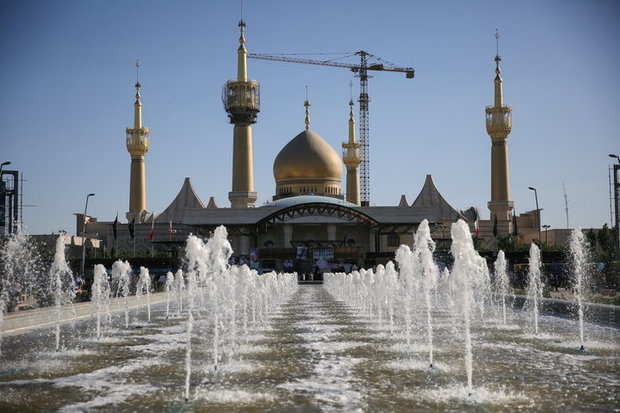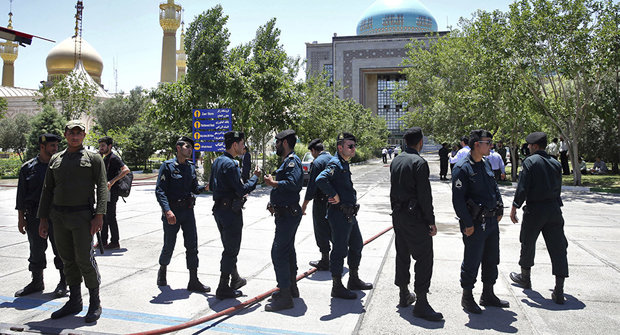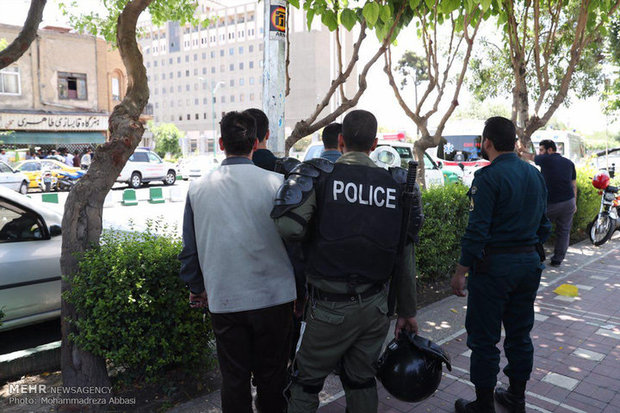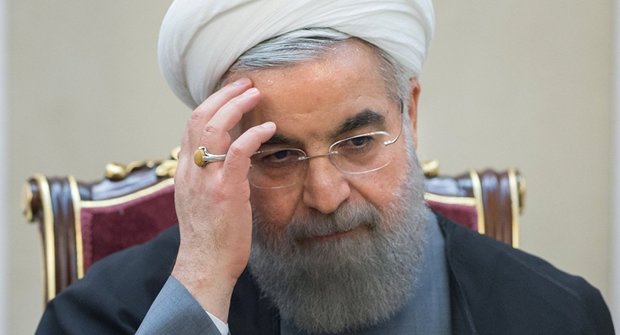''For Iran, it is a chance to unite the society and a kind of gift for Rouhani''
The attack on two symbols of Iran's statehood — Mausoleum of Ruhollah Khomeini and parliament. Reasons and consequences: expert’s opinion
Two terrorist attacks took place almost simultaneously in Iran on Wednesday: a suicide bomber killed himself in the Mausoleum of Ruhollah Khomeini and a skirmish in the country's parliament. Some people died. As it was expected, ISIS that is banned in Russia claimed responsibility. As Russian expert in Iranian studies Ismagil Gibadullin thinks, despite the big tragedy, the re-elected president of Iran got a chance to consolidate the population of the country and world community around himself. In an interview with a reporter of Realnoe Vremya, the expert also told about the holy role of the tomb of Ayatollah for Shias having compared it with Bolgar in Tatarstan and told about the fight of the Islamic Republic against terrorism.
Mausoleum – place for pilgrimage and military parades
Mr Gibadullin, could you tell about the mausoleum? Is it a holy place? What role does it play in the modern life of the Iranians?
The Mausoleum of Ruhollah Khomeini is a grandiose construction located in the south of Tehran in the district of big cemetery Behesht-e Zahra. It is not just a mausoleum but a complex of different administrative buildings, educational establishments, halls and pavilions, shopping malls and is measured in hundreds of hectares. The tomb of religious leader Khomeini who died in 1989 is in the centre of this building. It goes without saying, it is a holy place because unlike Lenin's mausoleum in Moscow or Atatürk's mausoleum in Ankara that are just memorial complexes the grave of Khomeini was initially designed according to Shia religious complex in Karbala, Najaf and Mashhad where religious leaders of the Prophet's dynasty and who are considered immaculate and holy in Shiism rest in peace.
Khomeini is probably the only Shia religious leader who deserved such post-mortal solemnity that compares him with sacral figures of the Shia history and even grants him a halo. The main function of the Shia mausoleum is to serve as place for pilgrimage – ziyarat. But it should not be confused with the Hajj, which is one of the Islamic canons. Ziyarat is a practice known among the Sunnis and Shias, a visit to graves of righteous and holy people, including to be closer to their grace. In Tatarstan, we all know the annual meeting of Muslims in Bolgar to visit graves of righteous ancestors (Editor's Note: Holy Bolgar Gathering). Religious leader Khomeini is this sacral person for the Iranians.
In addition, the mausoleum performs several very important political and ideological functions. All the foreign delegations are brought here, including leaders of other countries. The biggest political campaigns with hundreds of thousands of ordinary Iranians are held here. It has been an especial place of memory for Iran since the Islamic Revolution in the 1978-1979s. A protest of millions of people welcoming the religious leader in 1979 when he returned from Paris took place here. Millions of people who came to say Khomeini goodbye gathered here again 10 years later.

''The main function of the Shia mausoleum is to serve as place for pilgrimage. In addition, the mausoleum performs several very important political and ideological functions''
Can we compare it with Lenin's mausoleum where pioneers were enrolled, parades took place, people stood in queue? Or is it different?
Yes, military parades also take place here. Once I had a chance to lay flowers on the tomb of Khomeini as delegation member. A guard of honour in white dress uniform with gold-plated epaulettes was going ahead of us. We were broadcasted live on TV. All the ceremony indicators that are characteristic of rulers' mausoleums in other countries are present here, they are adjusted to Islam. For instance, flower laying was accompanied by reading of a prayer in Arabic and blessing to Prophet Mohamed and religious leaders, like Iranians do. By the way, the next anniversary of Khomeini's death with hundreds of thousands of people including thousands of foreign guests took place in this place several days before the terrorist attacks. It is one of the biggest annual events in the public and political life of Iran.
''ISIS has increased the anti-Iranian rhetoric in the last months''
Are terrorist attacks wide spread in Iran?
Iran, in general, as well as many Near Eastern countries, suffered from periods of political instability and a real rampage of terrorism. The last surge of this kind was after the victory of the Islamic Revolution in 1979 when numerous armed groups that did not want to lay down their arms and obey the new power acted in the country. The Iran–Iraq War that lasted for eight years down to 1988 also affected it all. Iran still remembers these years well. However, later terrorist attacks became a rare thing in the country. So Iran even gained a reputation of one of the safest and the calmest countries of the region. The country has not had notorious terrorist attacks in the last 7 years.
Several terrorist attacks took place in Iran in the 2000s. They were mainly in border-straddling regions inhabited by ethnic minorities – in Zahedan and Chabahar in the south-east of the country, in Ahvaz in the south-west where Arabs live. Numerous confrontations and skirmishes were on the border, there were several big terrorist attacks in Sistan and Balochistan, which is near the border with Afghanistan and Pakistan where Balochi Sunni live. Radical Salafist group Jundullah linked with Saudi Arabia claimed responsibility. Kurds living in the west of the country bothered the Iranians less. In general, we can say that terrorism for Iran is an occurrence that is common to Sunni border regions that often have economic problems, low infrastructure development level, archaic tribal lifestyle. It is easier to destabilise the situation and benefit from different contradictions in such regions.

''Of course, ideologically and politically, Iran is an enemy, real personification of evil for both radical and Salafist ISIS and other analogous groups.'' Photo: AP Photo/ Ebrahim Noroozi
Were members of the banned ISIS noticed in Iran? What relations does the country have with the terrorist group?
It is well known that Iran is one of the active players in the Near Eastern field. It participates in the Syrian war for Bashar Assad's government forces, helps Iraqi authorities to fight against ISIS (Editor's Note: an organisation banned in Russia) by sending its military instructors and coordinating the activity of tens of thousands of Shia volunteers. Of course, ideologically and politically, Iran is an enemy, real personification of evil for both radical and Salafist ISIS and other analogous groups. They don't admit Shias as Muslims and unclearly refer to Arab nationalism because under the influence of the Pan-Arab media the ''Arab Street'' already has a stable image of Persians as eternal enemies of Arabs rushing to hegemony over the Arab world.
We should note that ISIS has increased the anti-Iranian rhetoric in its statements in the last months. A video about Iran appeared on the Internet on pages belonging to ISIS fighters, there are different kinds of agitation in Farsi urging Iran's Sunnis to lead Jihad one month before the Tehran terrorist attacks. Iranian police workers claimed many times they found ISIS supporters in Iran, took prevention measures with the young in Sunni districts. Undoubtedly, such ideas can't be supported massively in Iran. However, sophisticated ways of recruitment used by ISIS in social networks including in Telegram that is popular among Iranians allow them to find supporters among Iran's Sunnis who then suddenly appear in either Afghanistan or Syria.
We should say the security provision measures of the Iranian special services were considered quite effective until now. They managed to neutralise threats and impede terrorist attacks from penetrating to the centre of the country. Today's terrorist attacks can mean a beginning of a new stage when the terrorist activity of ISIS towards Iran can multiply.
In addition, it is not completely clear who participated in the attack. Judging by one of the videos published by performers of the attack, they were speaking Arabic with a noticeable accent. Were they citizens of Iran, immigrants from Baluchistan or other Sunni regions? Iranian authorities promised to tell about it soon.

By experience of my visits to Iran, I had to visit both the Mausoleum of Khomeini and government establishments many times together with the delegation, I can say sensible security measures were taken there
Saudi and Iranian confrontation
Is it easy to enter the Iranian parliament? Is the Mausoleum of Khomeini well protected?
By experience of my visits to Iran, I had to visit both the Mausoleum of Khomeini and government establishments many times together with the delegation, I can say sensible security measures were taken there. Foreign guests and journalists always went through cordons with metal detectors during meetings with senior executives of the country. Moreover, despite the high security level in the country, foreign delegations were always guarded by gunners during very important events and congresses while moving in Tehran. Iranians probably had a lack of alertness and relaxed.
Mr Gibadullin, what consequences do you think will the terrorist attacks have for Iran in the foreseeable future?
It is too early to talk about consequences. Modern-day terrorist attacks can be called an attack on two most important symbols of the Iranian statehood – the parliament and Rahbar Institute, that is to say, democratic and theocratic foundations of their country. It is very symbolic. Some people already compared these events with 11 September when symbols of the American greatness – the World Trade Centre and Pentagon – were attacked.
Islamic Revolutionary Guard Corps (IRGC) already stated this attack won't remain unanswered and threatens its plotters with a terrible punishment. It is probably a beginning of a kind of Iranian ''war on terror''. Earlier Rahbar also urged that the country and the police needed to severely react to all the challenges, not to remain them unanswered. In other words, we are talking about a new political model on national security provision where there will be more room for preventive strikes. Iran will have to become active at all the fronts. The importance of IRGC will increase many times. In addition, the terrorist attacks were neutralised quite effectively, which raises the authority of the police in society. Now many Iranians will understand why Iran participates in Near Eastern affairs because the threat of radical Salafism has approached their homes.
And IRGC representatives and President of the country Hassan Rouhani too early clearly claimed Saudi Arabia's implication in these events – it is Iran's lasting rival in Near East and the USA's ally. Indeed, just several hours before the attack, Head of the Saudi Ministry of Foreign Affairs Adel al-Jubeir severely criticised Iran and baselessly accused of supporting terrorism as well. Earlier Prince Mohammad bin Salman said the war with Iran needed to switch to Iran. It all can directly or indirectly indicate Saudia's implication.

''For Iran, it is a chance to unite the society and a kind of gift for Rouhani who was re-elected for the second term.'' Photo: Sergey Guneyev (sputnik.by)
Very Iran is going through consolidation of society, solidarity campaigns where foreign Iranian diasporas also attracted. For Iran, it is a chance to unite the society and a kind of gift for Rouhani who was re-elected for the second term who needed a new agenda very much. It would help him to increase the support in society and simultaneously help his efforts in integration into the world community. The majority of western leaders already expressed Iran their condolences and solidarity. It raises a question on attraction of Iran to the club of countries fighting on terrorism and weakens positions of supporters of Iran's isolation that reigns in Trump's administration, his like-minded people in the government of Israel and their satellites in Near East in the person of Saudi Arabia.